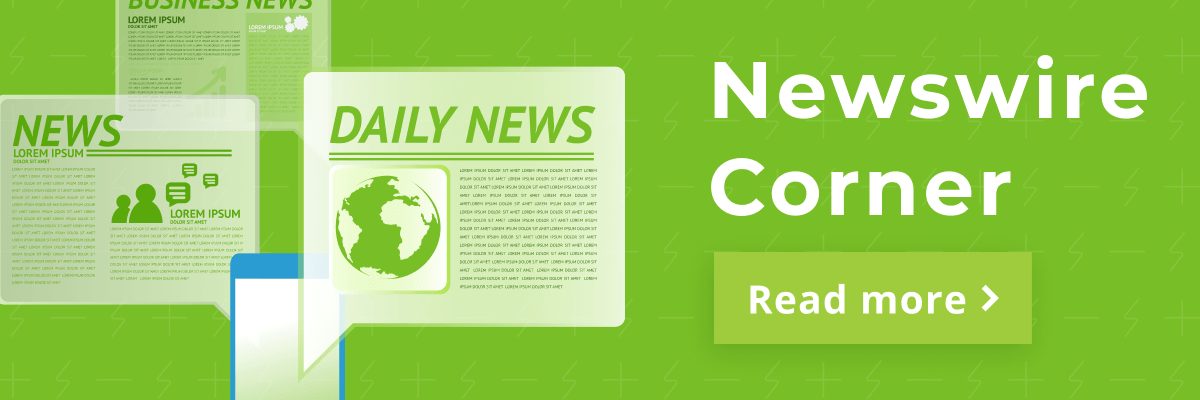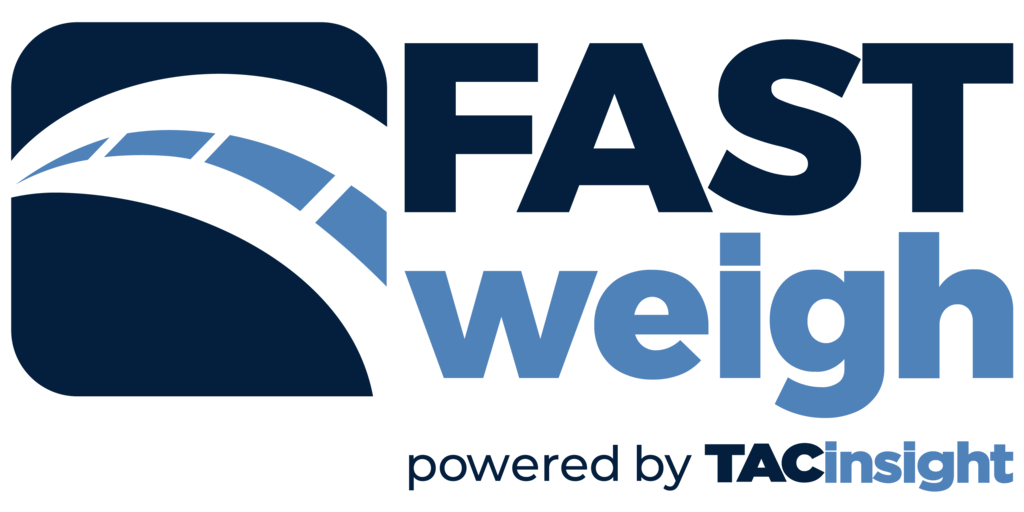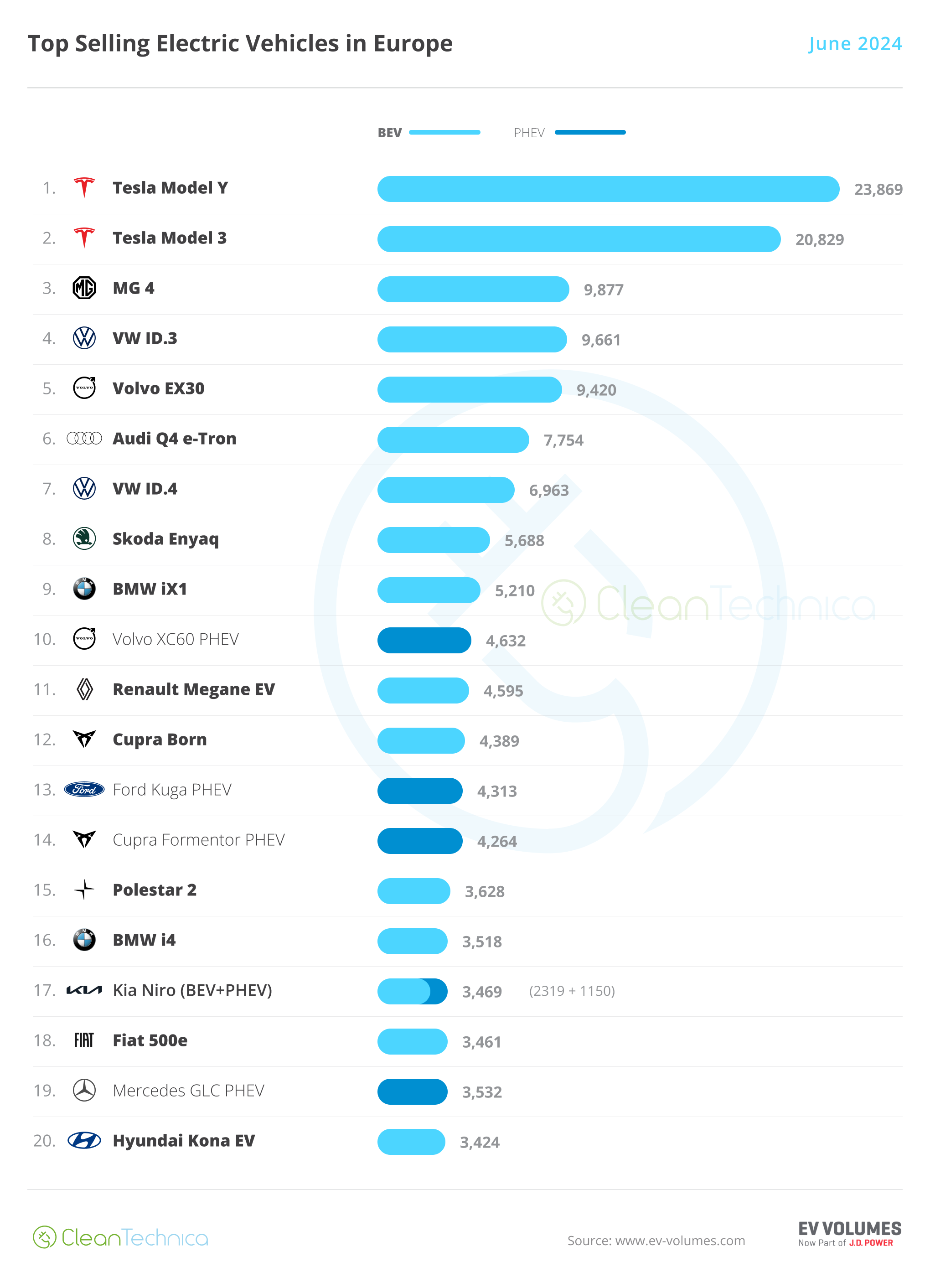Sign up for daily news updates from CleanTechnica on email. Or follow us on Google News!
When the Board of Commissioners for Washtenaw County, Michigan, approved a climate action plan in 2022, the county was uncertain what implementation steps it needed to take—and how to pay for all of it.
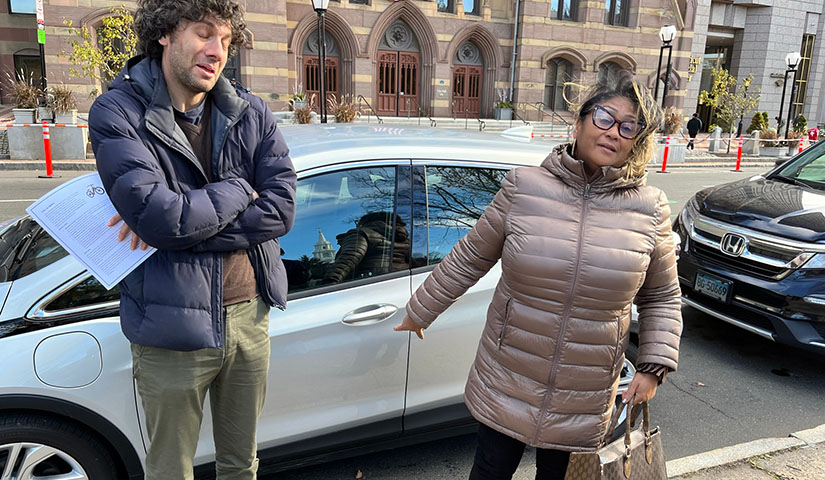
Limited staff, financing, resources, and data meant the county’s fleet management team “needed help in any form,” said Mary Braun, an energy and sustainability coordinator for Washtenaw County. Braun knew that electrifying the county’s vehicle fleet could contribute to the county’s operations goal of net-zero greenhouse gas emissions by 2030, but she was unsure where to begin.
“What are we even supposed to look at?” she said. “What are we supposed to think about?”
These questions are among those that national laboratory researchers are helping communities like Washtenaw County answer through the U.S. Department of Energy’s (DOE) Clean Energy to Communities (C2C) program. Braun applied and was accepted to C2C’s Expert Match offering, a three- to four-month technical assistance program that pairs communities with researchers at the National Renewable Energy Laboratory (NREL) and other national laboratories to help them address near-term energy goals. Expert Match is one of three offerings within C2C, which also provides six-month and three-year technical assistance paths for communities.
Washtenaw County, along with New Haven, Connecticut, and other communities, is using Expert Match assistance to explore how electric vehicles (EVs) can support clean energy goals. Although Washtenaw and New Haven joined the program with relatively little data and many questions, researchers at NREL and Argonne National Laboratory (ANL) have since helped them take steps toward integrating EVs into their communities.
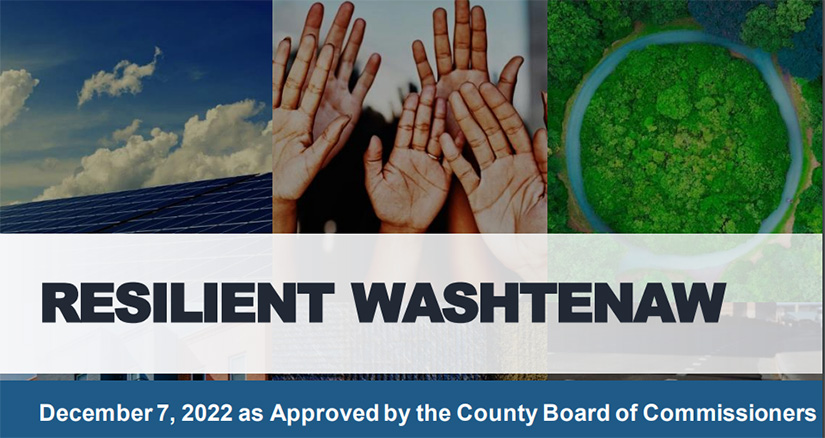
Understanding Options for Electrifying Washtenaw County’s Municipal Fleet and Integrating EV Charging Stations in New Haven
Based on Washtenaw’s goal to integrate EVs into its county fleet, Expert Match researchers at ANL developed an analysis of EV fleet options to create a road map for fleet electrification. The researchers used TechScape, a techno-economic tool developed by ANL, to quantify the benefits of available electric, hybrid, and plug-in hybrid vehicles in terms of total cost of ownership, emissions, and energy savings—with and without the Inflation Reduction Act (IRA) tax incentive. The IRA offers a tax credit to those who buy a new, qualified plug-in EV or fuel cell EV.
Based on this data, the researchers compared EVs available on the U.S. market with Washtenaw County’s existing conventional vehicles.
Knowing the type and number of EVs to potentially replace conventional vehicles will help Washtenaw County strategically “plan the charging infrastructure for its geographically dispersed fleet, focusing on aspects such as location, types of chargers, and the number of chargers needed,” ANL researcher Charbel Mansour said. “This support is particularly crucial as the county aims to integrate EVs into a request for proposals for fleet management.”
Like Washtenaw, New Haven was also starting from scratch when it entered Expert Match. New Haven wanted to craft an ordinance for zoning and permitting EV charging stations based on parking availability, but it lacked data and an understanding of the framework and land-use considerations that go into creating an ordinance, according to Steven Winter, executive director of climate and sustainability for the city of New Haven.
To provide New Haven with some strong examples, the Expert Match team tapped the expertise of ANL’s Marcy Rood, a principal environmental analyst in transportation.
“We don’t recommend a certain policy, but we present options to decision makers so they can do what’s best for their communities,” Rood said. “I provided the resources that I was familiar with and some individual cities that I knew had adopted similar ordinances. … I was able to bring those model ordinances to their attention so they could look at the pros and cons of each.”
Rood worked in tandem with the Clean Transportation Communities of Southern CT (formerly Greater New Haven Clean Cities Coalition) to capture regional knowledge, ideas, and research. Clean Cities and Communities coalitions—a DOE partnership to advance clean transportation nationwide—are composed of businesses, fuel providers, vehicle fleets, state and local government agencies, and community organizations that address clean transportation solutions. These stakeholders share information and resources, inform public policy, educate the public, and collaborate on transportation projects for their regions.
Rood gleaned that New Haven’s lack of data left the city with an incomplete picture of its ability to accommodate charging stations.
“At one point in the conversation they were struggling with, ‘How many stations should we deploy based on what we think is the number of electric vehicles that will come to the New Haven marketplace?’” Rood said.
She also helped New Haven consider impacts to disadvantaged neighborhoods.
“One perspective that I brought to the table that was, I think, unique: What are the impacts to disadvantaged neighborhoods?” Rood said. “There might be more traffic with the installment of electric vehicle charging stations. How do we give disadvantaged communities the ability to be part of these cleaner transportation solutions and give them access to electric vehicles and charging?”
Rood and the Expert Match team turned to NREL’s EVI-Equity tool—one of many EV infrastructure analysis tools that are a part of the lab’s flagship EVI-X modeling suite—to evaluate New Haven’s current and future EV charging infrastructure for home and public locations using various technological, behavioral, social, economic, environmental, and structural factors. EVI-Equity’s predictions and suggestions for more equitable and just EV adoption and infrastructure deployment can lay the groundwork for improved access and widespread adoption of EVs in the future.
NREL researcher Dong-Yeon Lee, an expert on the EVI-Equity tool, first explored potential demand for commercial public charging stations in New Haven.
“I looked at how people spend their money in the context of their household expenditure patterns … to tell whether buying an EV is a good fit to them based on the affordability of purchasing and operating EVs,” Lee said.
New Haven also needed to consider the potential public on-street or “curbside” parking and charging that would be available.
“I estimated all the way down to the neighborhood level to see how many parking spaces along the street might be available,” Lee said. “That’s a key element New Haven was looking for, to compensate for the lack of home charging access for multifamily-home residents in the city.”
Next Steps Toward Transitioning to Electric Vehicles: Securing Funding and Drafting Legislation
Armed with data about electric vehicle options, Braun estimated that the information and expertise provided to Washtenaw by the C2C Expert Match team would enable the county to create a solid road map for transitioning its fleet to EVs.
“Now it’s whether or not we’re actually able to fund that transition by 2030,” she said.
As part of the Expert Match support Washtenaw received, Michigan Clean Cities also stepped in to identify appropriate funding sources for Washtenaw’s fleet transition.
“Here in Michigan, obviously families have ties to the auto industry,” said Jamie Leonard, a fleet analyst for Michigan Clean Cities who is from Washtenaw County and worked on the project. “Our job is to just be realistic. … Somebody might say, I want to electrify my fleet of X vehicles and I want to do it this way. We have to be very real about the technology and its limited capabilities and where it works. We take an idea, a goal and … see what’s there on the market, a tool to help you achieve that; is it actually going to work for you … and how do you pay for it?”
Finding public funding opportunities requires knowing where to look, what to look for, and having the time to weed through dense government documents and websites.
“We have a good relationship with the Department of Energy, and we work with the Department of Transportation as well as local and state governments,” Leonard said. “It’s a great problem to have all this public funding. But your average municipal fleet or private fleet just doesn’t have the resources or the bandwidth to spend their time clicking through these pages and staying up to date on all the news.”
Braun can already sense that the information Expert Match has provided can help make a strong argument for fleet electrification in Washtenaw.
“What will be really valuable in terms of communicating with our board and making our requests for funding is to lay out how … it’s not going to be really that much significantly more expensive than just our regular replacement plan for vehicles,” Braun said.
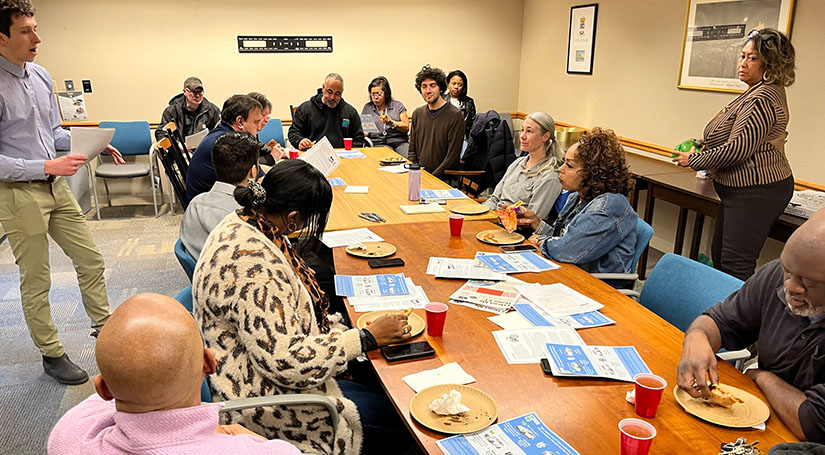
In New Haven, the Expert Match team provided the EVI-Equity tool findings and underlying data to the city to support EV zoning proposals. With the help of their Clean Cities and Communities coalition, New Haven was able to “flesh out the electric vehicle zoning for the EV readiness ordinance and put together a presentation to explain how it would work,” Winter said.
“We’re focused on stakeholders within city government to try to get them excited about this new city legislation,” Winter said. “We have used the presentation in meetings with other city departments like our building inspection and enforcement office, our zoning department, and our city engineer.”
The Expert Match resources enabled New Haven to draft an ordinance that was preparing to head to the local legislature as of December 2023.
New Haven’s work with the Expert Match program also positioned the city to benefit from the C2C’s Peer-Learning Cohorts offering, too. Peer-Learning Cohorts convene communities across the country for six months to address common energy goals, and New Haven participated in a cohort surrounding planning and funding EV charging infrastructure during the second half of 2023. Gaining more in-depth knowledge on the nuances of zoning and local permitting and policy gave Winter the ability to engage meaningfully in the cohort’s discussions.
“Expert Match was more focused on creating an ordinance and getting a better understanding of the data on parking availability,” Winter said. “The Peer-Learning Cohort was more about learning from other cities how they are approaching these problems, like what the procurement and installation and maintenance of charging stations looks like.”
“C2C’s support for Washtenaw County and the city of New Haven leveraged the deep expertise of researchers at ANL and NREL, as well as the important local context and expertise of local Clean Cities and Communities coalitions,” said NREL’s Sika Gadzanku, who managed both technical assistance requests and also leads the C2C Expert Match Program. “This a model we use with all transportation-related requests, and we are excited for the opportunity to work with more communities across the country.”
C2C connects community-based groups, local governments, utilities, and other organizations with national-laboratory experts to close the gaps between communities’ clean energy ambitions and real-world deployment. The technical assistance offered through C2C can offer meaningful insights around clean energy decision-making to help communities achieve resilient clean energy systems that embody local and regional priorities. For example, C2C analysis can provide insights on the financial and social costs and benefits of electric vehicles, geothermal systems, or capturing and storing solar energy. Such analysis provides community-specific information on the funding and support needed to bring clean energy projects to fruition.
Expert Match applications are accepted and reviewed on a rolling basis, and Peer-Learning Cohorts open applications twice per year. Learn more about open opportunities, find out which C2C offerings can support your community’s energy transition, and apply on the C2C website.
Article from NREL. By Brooke Van Zandt
Have a tip for CleanTechnica? Want to advertise? Want to suggest a guest for our CleanTech Talk podcast? Contact us here.
Latest CleanTechnica.TV Video
CleanTechnica uses affiliate links. See our policy here.

